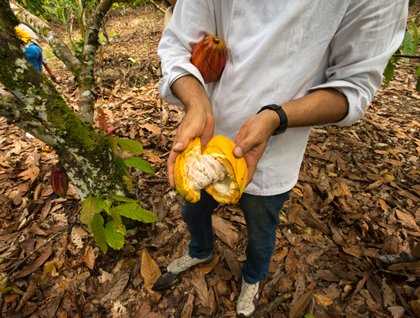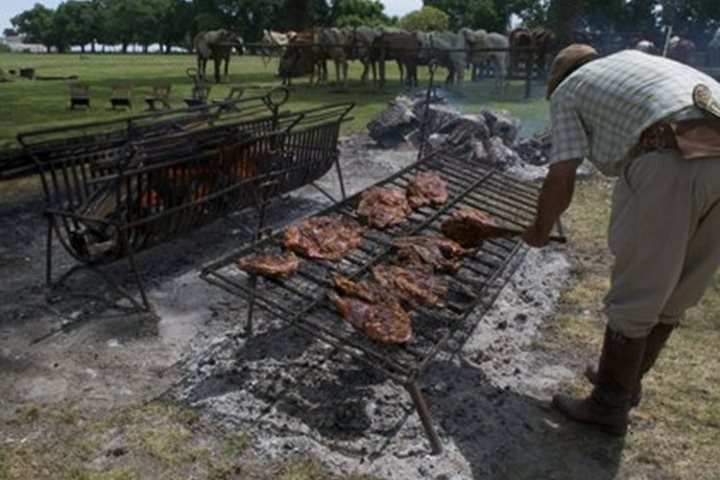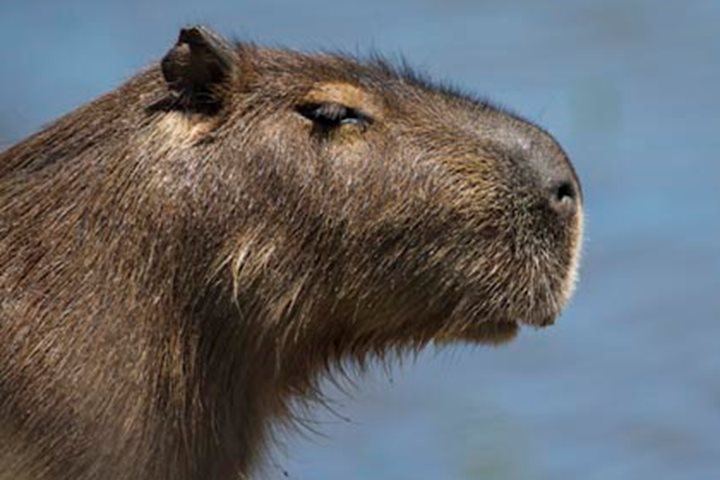Leaving the large metropolis of Salvador to the north, our evening transit settled us into the relatively sleepy town of Ilhéus by 6:00am this morning. Renowned for its legacy of cacao harvesting (the large, yellowish fruit that is the primary ingredient in chocolate) this coastal town is home to 225,000 Brazilians and nearly as many hectares of cacao trees. Our intentions for the day varied from a dedicated birding trip, to a tour of one of Ilhéus’ many cacao plantations, to guided tours through the town center, to relaxing on the sandy beaches just outside of town.
A clear, warm dawn ushered us into our morning options and led all the groups well west into the heart of the Brazilian rain forest. The plantation goers arrived at the lush, vegetated hedgerows of the farm an hour into their drive before guided tours of this expansive, beautifully manicured location began. Some struck out into the forest immediately, taking in the biodiversity of the renowned Brazilian forest ecosystem, while the rest began their visit with an explanation of the plantation’s production history. Part of this history includes an arboreal disease, which nearly wiped out the crop a few years back. Extensive horticultural research and plant science has given this farm a second life, allowing operations to renew and the current owner and 400-year familial descendant, to take part in the tours around the property.
From tree, to harvest, to drying procedures we were escorted through the important first steps of turning the seeds of this yellow fruit (those being a pale, fleshy color) into the sour chocolate nibs that are ready to meet butter and sugar and our eager chocolate appetites.
After enjoying this morning’s setting we set off into Ilhéus proper for a look at this colorful town and the locals who have made it what it is. One of those people was Jorge Amado, acclaimed author of Bahia of All the Saints, Gabriella, Cloves and Cinnamon, Captain of the Sand and many other books. Associated with the likes of Pablo Neruda and other acclaimed writers of the day, Amado’s home still stands as a museum dedicated to his life and works and takes its place at the center of town. In addition to visiting his home we wove our way through the streets, stopped at a former brothel and enjoyed beverages at one of Amado’s former haunts, Vesúvio Bar.
After a full yet relaxing morning and afternoon our day was not over. Following dinner we were graced with the sounds of Bahian band, Sertanílía. Out on the back deck, under the stars and in the comfort of perfect weather this five-piece group, led by vocalist Aiace, serenaded us with the more mellow side of Brazilian music. Beautiful guitars, percussion, an electric cello, and of course Aiace’s voice, carried us into the evening and signaled the close of our first three days in this diverse and hospitable country.







